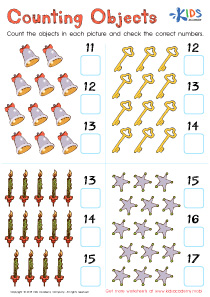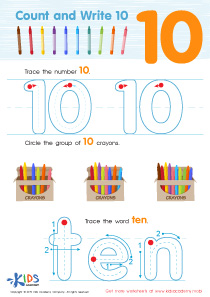Understanding rounding Normal Rounding Worksheets for Ages 4-9
5 filtered results
-
From - To
Discover the joy of mastering rounding with our "Understanding Rounding Normal Rounding Worksheets" designed for children ages 4-9. These engaging worksheets provide a fun and interactive way for young learners to grasp the concept of rounding numbers to the nearest ten or hundred. Perfect for early math skills development, our resources include colorful visuals and clear, simple explanations that make learning intuitive. Encourage critical thinking and boost confidence as children practice rounding with our carefully curated exercises. Explore the link to access a variety of worksheet options that will transform your child's math experience, making learning enjoyable and effective!
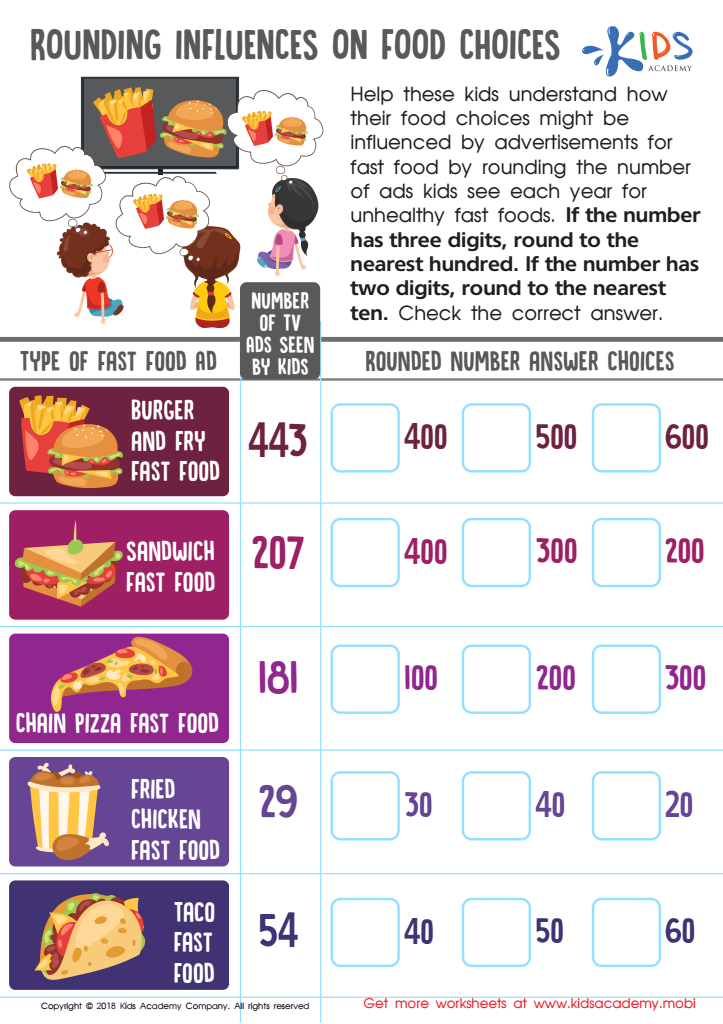

Rounding Influences Food Choices Worksheet
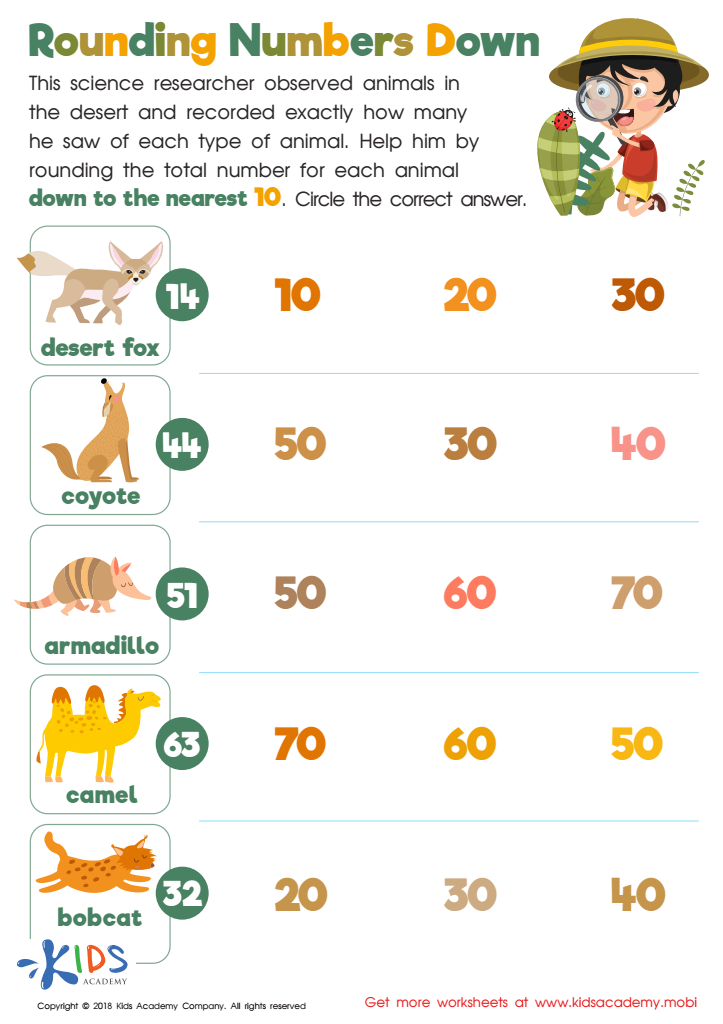

Rounding Numbers Down Worksheet
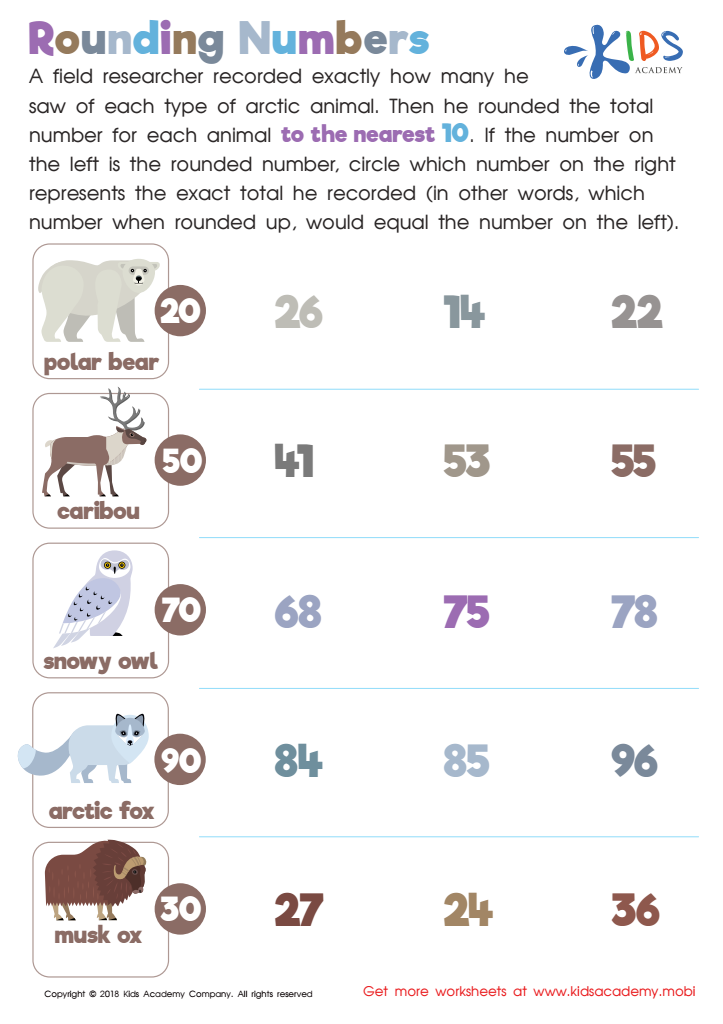

Rounding Numbers Worksheet
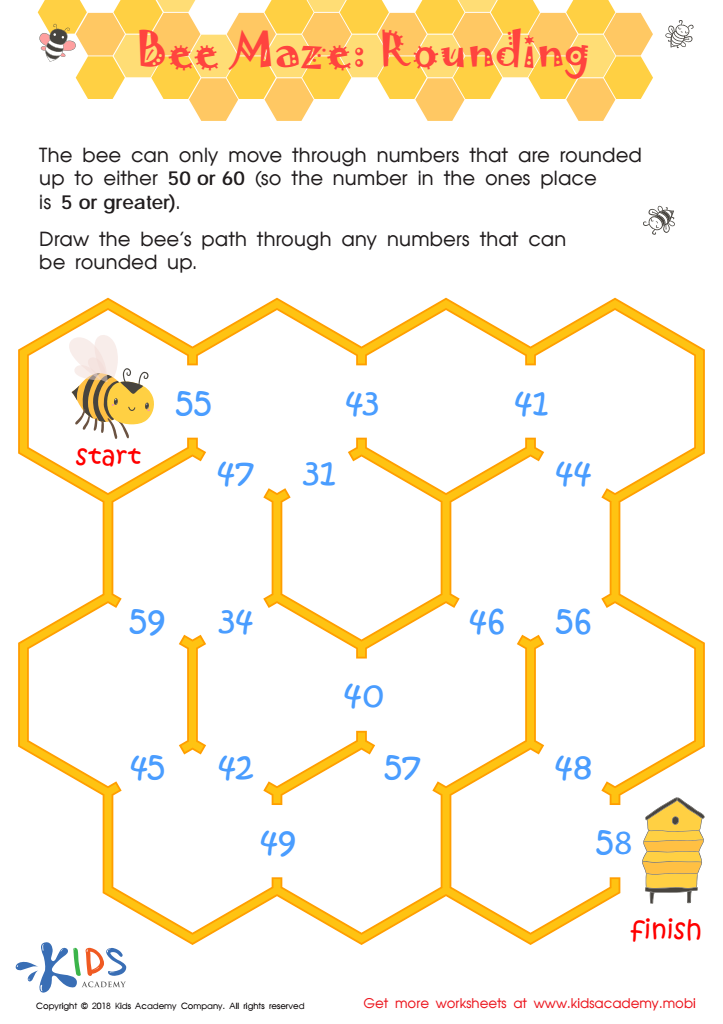

Bee Maze Rounding Worksheet
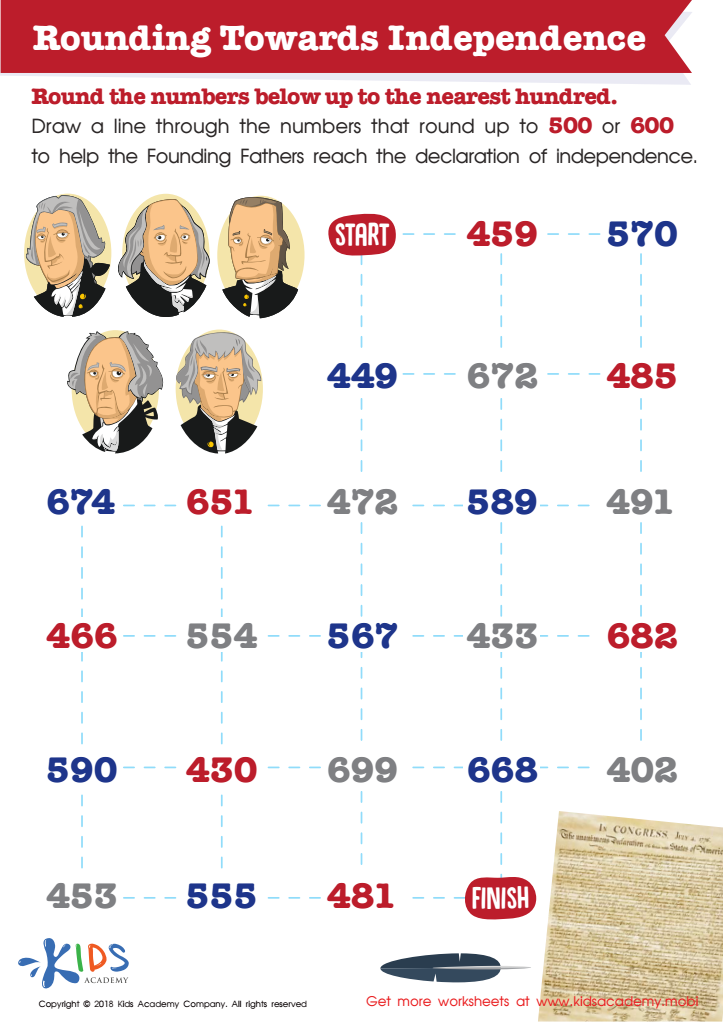

Rounding Towards Independence Worksheet
Understanding normal rounding is essential for children aged 4-9 because it lays the foundation for their mathematical development. At this age, children are beginning to grasp the concept of numbers and their relationships. Rounding helps simplify these concepts and makes mental math much easier.
When children learn rounding, they develop the ability to estimate and make quick calculations, which are valuable skills in daily life. For instance, when shopping, they can estimate total costs by rounding prices, helping them make informed decisions about spending. Additionally, rounding enhances problem-solving skills, enabling children to approach complex math problems with greater confidence and strategy.
Parents and teachers should care because rounding contributes to overall numeracy, and mastery of this skill can lead to improved performance in future mathematical topics such as addition, subtraction, and even fractions. It’s also a key concept standardized tests assess as children advance through school.
By fostering an early understanding of normal rounding, educators and parents support children's cognitive development and encourage a positive attitude towards mathematics, setting them up for success as they progress through their education. Engaging children with fun activities involving rounding will ultimately promote critical thinking and a robust mathematical foundation.
 Assign to My Students
Assign to My Students







